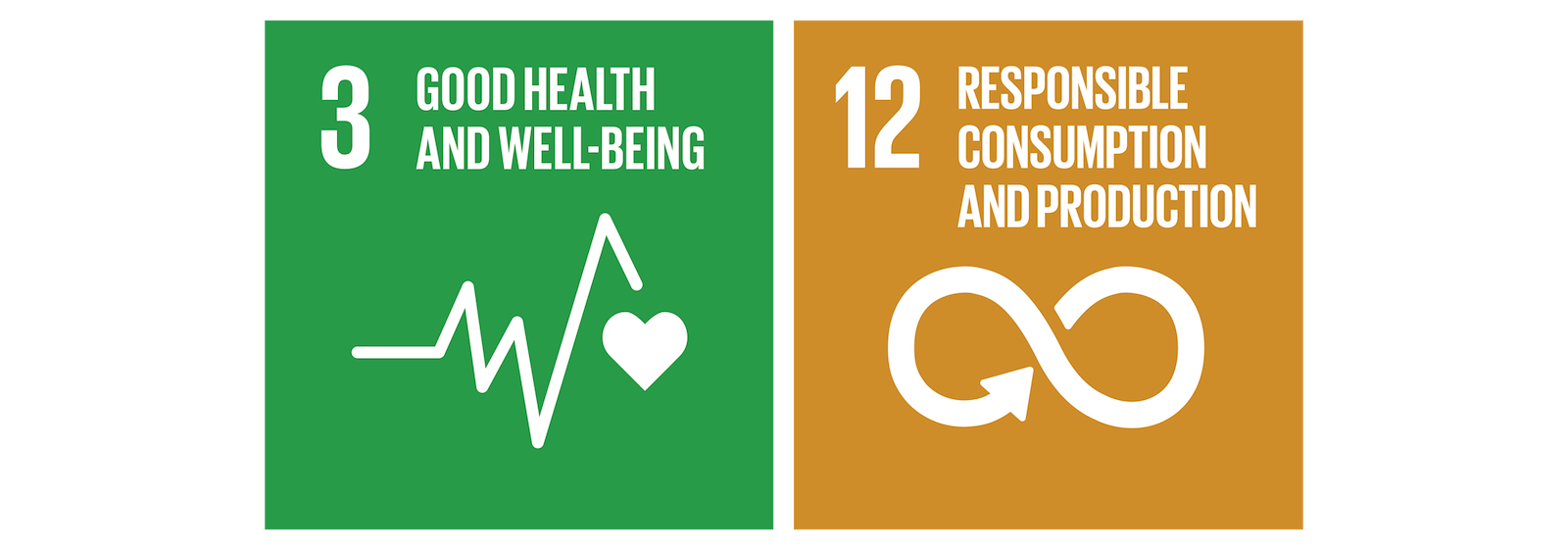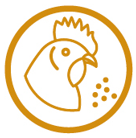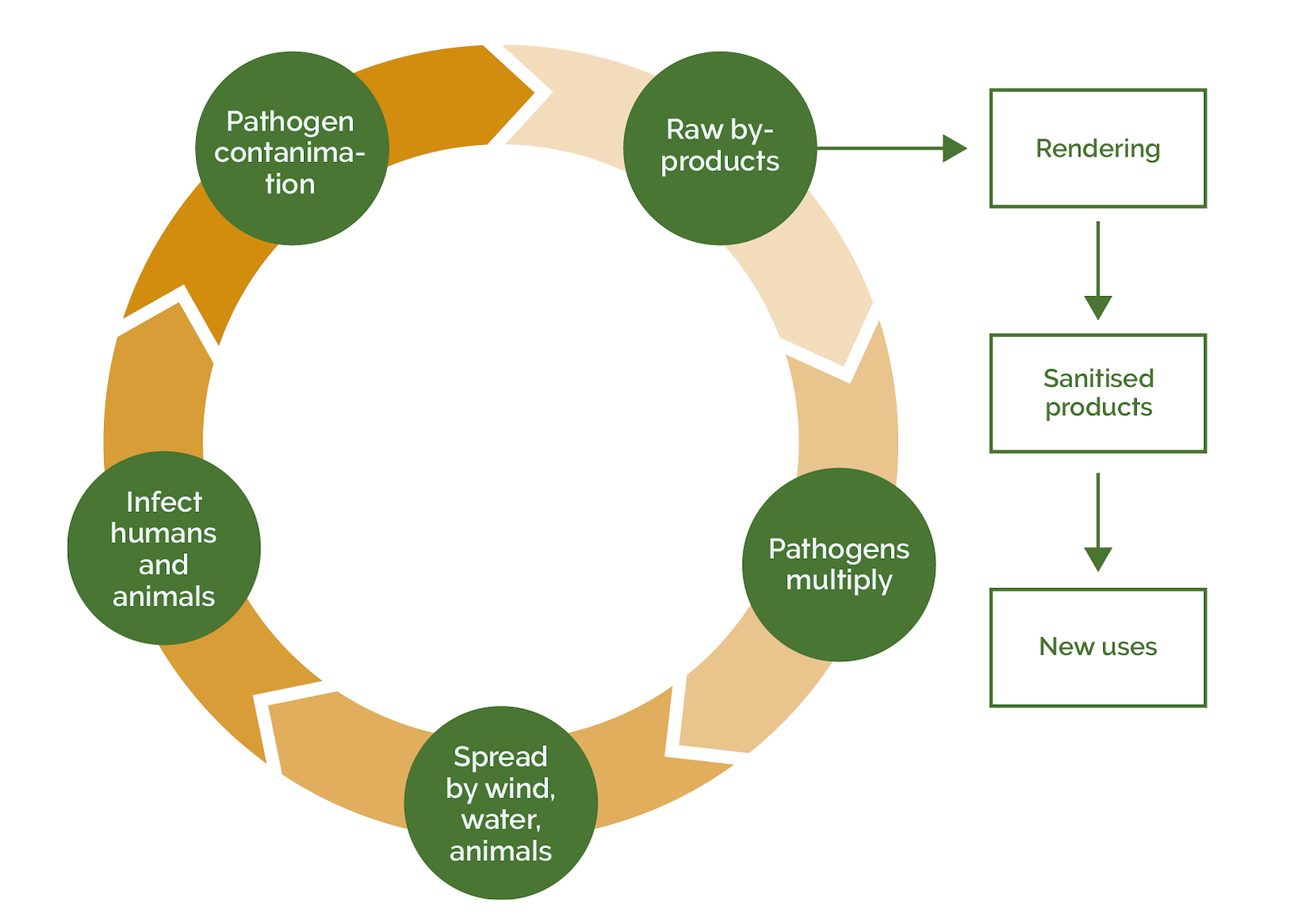Health


We are dedicated to safeguarding animal, human and environmental health, and achieving the highest standards for safe and nutritious ingredients
Our role is to safely collect and process ABP and edible co-products into useful healthy products. Our members contribute to animal health and welfare through utilisation of our nutritious products in animal feed and through disease prevention and control.
Biosecurity, disease and fallen stock control
If ABP are not managed appropriately by well trained staff, they present a serious health risk and the primary purpose of treating or disposing of ABP is the protection of environmental, animal, and public health against these potential microbiological threats.
The collection and disposal of fallen stock without undue delay is an important component of farm biosecurity in both normal and disease outbreak scenarios.
Member States have obligations to ensure the safe disposal of fallen stock to safeguard both public and animal health which normally means disposal by rendering or incineration. At times of crisis, EFPRA members also provide essential secure animal disease control and waste disposal services to health authorities. View Case Study 16 & 17
Treating ABP by rendering provides safe and secure treatment of ABP using strictly controlled and regulated storage, collection, transport and processing. The rendering process destroys pathogens and stabilises the ABP to eliminate disease risk, breaking the disease cycle and produces sanitised, safe, low carbon products for re-use in various applications. See the figure below:

Our members deal with Avian Influenza outbreaks most years and African Swine Fever continues to spread in many parts of the world, including eastern Europe. The animal feed and ABP processing industries must be ready to address animal health and feed safety concerns around transmission of viruses via ABP derived products from harvested diseased fallen stock.
With the exception of BSE, the EU allows the treatment of all animal diseases as Category 2 ABP. The derived protein products from Category 2 are approved for use as fertiliser. The EU’s approval for this is based on scientific evidence which shows that the ABP processing methods are sufficient to eliminate all known classical diseases, making the derived products safe.
ABP derived products used in feed are safe
Our feed grade products are produced from safely sourced and traceable Category 3 raw materials. The highest standards of hygiene and traceability mean our products are safe and suitable as healthy ingredients for animal feed or fertiliser. Strong traceability measures eliminate the possibility of intra-species consumption. Processing is undertaken at facilities with strict hygiene procedures based on Hazard Analysis Critical Control Point (HACCP) principles to comply with health rules; facilities are accredited to QS and GMP+.
ABP derived products are nutritional and palatable
PAPs are a valuable source of protein for pigs, poultry, farmed fish and pets. Animal proteins also have a relative abundance of essential amino acids, resulting in high feed efficiency and good animal welfare. PAP is an important organic source of phosphates which are highly digestible compared to plant origin phosphorus. High quality feed also contributes to better health and robustness of animals. For example, blood products supply natural immunoglobins which can reduce the need for animal medication.
Our high-grade edible oils and fats are an established and essential part of a healthy human diet, providing a source of energy, fatty acids and vitamins (A, D, E, K and oleic acid) and they support nutrient utilisation. As a component in compound feed for livestock, food grade animal fats have different properties than vegetable fats. The animal fat component can contribute to a harder consistency of the carcass, especially the bacon. Animal fat is rich in energy and has a high content of essential fatty acids. Fat also binds dust in compound feed. Our feed products also satisfy natural omnivores and carnivores' dietary needs without reliance on unnatural vegetable diets.
Our industry is highly adaptable to the societal challenges we face.